Featured
 How We Win the Civil War: Securing a Multiracial Democracy and Ending White Supremacy for Good. By Steve Phillips / The Guardian
How We Win the Civil War: Securing a Multiracial Democracy and Ending White Supremacy for Good. By Steve Phillips / The Guardian
“If we first recognize that we are in a war, and then learn the lessons and follow the lead of those who have shown they know how to prevail, we can definitely win the Civil War, secure a multiracial democracy, and end white supremacy for good.” —from the introduction
Now, in How We Win the Civil War, Phillips charts the way forward for progressives and people of color after four years of Trump, arguing that Democrats must recognize the nature of the fight we’re in, which is a contest between democracy and white supremacy left unresolved after the Civil War. We will not overcome, Phillips writes, until we govern as though we are under attack—until we finally recognize that the time has come to finish the conquest of the Confederacy and all that it represents. With his trademark blend of political analysis and historical argument, Phillips lays out razor-sharp prescriptions for 2022 and beyond, from increasing voter participation and demolishing racist immigration policies to reviving the Great Society programs of the 1960s—all of them geared toward strengthening a new multiracial democracy and ridding our politics of white supremacy, once and for all. Also see: America is built on a racist social contract. It’s time to tear it up and start anew. By Steve Phillips / The Guardian
Related: What if We Let Majoritarian Democracy Take Root? By Jamelle Bouie / NYT
Related: US politics’ post-shame era: how Republicans became the party of hate. By David Smith / The Guardian
Political / Social
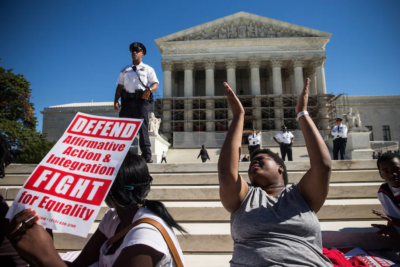 Does campus diversity justify affirmative action? Our study says yes. By Adam Chilton, Justin Driver , Jonathan Masur and Kyle Rozema / Wash Post
Does campus diversity justify affirmative action? Our study says yes. By Adam Chilton, Justin Driver , Jonathan Masur and Kyle Rozema / Wash Post
This month, the Supreme Court will hear oral arguments in two cases that pose the starkest threats ever to affirmative action in higher education. Central to those cases, involving admissions programs at Harvard College and the University of North Carolina, will be the value of campus diversity, which is the sole justification for affirmative action that the court has endorsed. But we have found a way to quantify the value of diversity in higher education, as these GOP-appointed justices demanded. In a Columbia Law Review article published this year, we marshaled statistically significant evidence that the value of racial diversity is not illusory. Read more
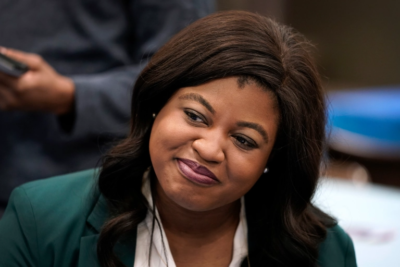 Deidre DeJear Runs for Governor in Iowa. By Aaliyah Wright / Capital B
Deidre DeJear Runs for Governor in Iowa. By Aaliyah Wright / Capital B
The gubernatorial candidate answered questions about improving racial disparities in maternal health and expanding early childhood education.
Deidre DeJear is used to being a “first.” In 2018, she became the first Black person nominated by a major party for a statewide office in Iowa when she campaigned for secretary of state. Now, she’s Iowa’s first Black nominee for governor, hoping to unseat Republican Gov. Kim Reynolds in a historic midterm election on Nov. 8. DeJear is one of five Black women running to become the country’s first Black female governor. Read more
 Oprah seeks to lend her appeal to Abrams in Georgia election. By AP and NBC News
Oprah seeks to lend her appeal to Abrams in Georgia election. By AP and NBC News
Winfrey appeared in a prerecorded chat with Abrams on a campaign website Thursday, saying she believes the candidate has a “calling to want people to be able to do better, to live better and to thrive in their lives.”
Oprah Winfrey is again shining her star power on Democrat Stacey Abrams’s bid for governor in Georgia, as Abrams pursues a rematch against incumbent Republican Brian Kemp, who she narrowly lost to in 2018. “I’m wishing that the people of Georgia come out and make that a reality for you and the state of Georgia,” Winfrey said. The appearance comes during the first of three weeks of early voting in Georgia, as Democrats in particular seek to drive their voters to cast ballots early. More than 434,000 people had already voted as of Thursday morning. Read more
 After Mississippi’s water crisis, the EPA has launched an investigation. By AP and NPR
After Mississippi’s water crisis, the EPA has launched an investigation. By AP and NPR
A trickle of water comes out of the faucet of Mary Gaines a resident of the Golden Keys Senior Living apartments in her kitchen in Jackson, Miss., Sept. 1, 2022.
The U.S. Environmental Protection Agency said Thursday that it is investigating whether Mississippi state agencies discriminated against the state’s majority-Black capital city by refusing to fund improvements for its failing water system. The announcement came days after leaders of two congressional committees said they were starting a joint investigation into a crisis that left most homes and businesses in Jackson without running water for several days in late August and early September. Read more
Related: Mississippi community with Confederate monument gets Emmett Till statue. By AP and NPR
 Two Hatreds Empower Anti-Semitism on the Right. By David French / The Atlantic
Two Hatreds Empower Anti-Semitism on the Right. By David French / The Atlantic
When a movement loses its moral voice and its moral will.
What is going on? Two hatreds are combining to empower anti-Semitism on the right. The first is obvious enough: It’s the hatred of Jews plain in the messages themselves. It’s the ancient evil that has plagued the Jewish people for millennia. A second hatred, however, enables the first. Parts of the right simply loathe the left. They hate progressives, and they will never react to any progressive criticism by taking concrete action against anyone on “their” side. They might say they’re opposing cancel culture, but this same quarter of the right delights in censorship when it controls the levers of power. Read more
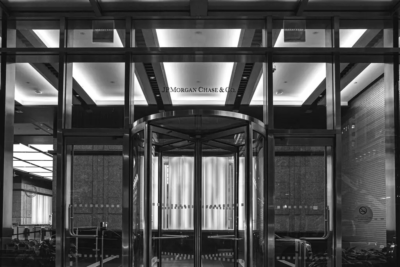 Where $30 Billion to Fix Systemic Racism Actually Goes. By Emily Flitter / NYT
Where $30 Billion to Fix Systemic Racism Actually Goes. By Emily Flitter / NYT
In 2020, JPMorgan pledged to invest significant resources in closing the racial wealth gap. Here is what the bank did, and what it looks like when a private-sector company tries to fix a societal problem.
I wondered what might change with this $30 billion pledge. The website for the pledge outlined its components without going into much detail. At first glance, it was hard to tell what was charity and what was part of the bank’s regular business. In JPMorgan’s words, the bank would do things like “promote and expand affordable housing and homeownership for underserved communities” and “improve financial health and access to banking in Black and Latinx communities.” Read more
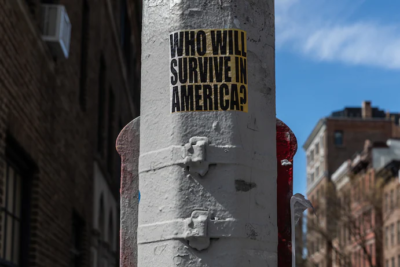 Whites now more likely to die from covid than Blacks: Why the pandemic shifted. By Akilah Johnson and Dan Keating / Wash Post
Whites now more likely to die from covid than Blacks: Why the pandemic shifted. By Akilah Johnson and Dan Keating / Wash Post
An ominous sign hangs near Washington Square Park in New York on March 24, 2020, at the beginning of pandemic lockdowns seeking to stop the spread of the coronavirus. The virus spread anyway. (Jeenah Moon/For The Washington Post)
A Post analysis of covid death data from the Centers for Disease Control and Prevention from April 2020 through this summer found the racial disparity vanished at the end of last year, becoming roughly equal. And at times during that same period, the overall age-adjusted death rate for White people slightly surpassed that of Black and Latino people. The Post analysis revealed the changing pattern in covid deaths. At the start of the pandemic, Black people were more than three times as likely to die of covid as their White peers. But as 2020 progressed, the death rates narrowed — but not because fewer Black people were dying. White people began dying at increasingly unimaginable numbers, too, the Post analysis found. Read more
 America has a Black sperm donor shortage. Black women are paying the price. By Amber Ferguson / NYT
America has a Black sperm donor shortage. Black women are paying the price. By Amber Ferguson / NYT
Black men account for fewer than 2 percent of sperm donors at cryobanks. Their vials are gone in minutes.
 A push in Congress to help Black WW II vets who didn’t benefit from the GI Bill. By Guil Lawrence / NPR
A push in Congress to help Black WW II vets who didn’t benefit from the GI Bill. By Guil Lawrence / NPR
William Dabney, a veteran of the D-Day invasion, with his son, Vinnie Dabney, at the French Embassy in Washington, D.C., on June 4, 2009, ahead of their trip to France, where the elder Dabney received the Legion of Honor, the French government’s highest award for his actions in WWII.
Just wearing a uniform in the South could be a provocation. In 1946, Army vet Isaac Woodard was pulled off a bus, wearing his Army uniform, and beaten nearly to death by a South Carolina police chief. The attack left Woodard blind. The police chief was later acquitted by an all-white jury. It’s one in a long list of lynchings and attacks on Black WW II veterans. And there were other forms of racism — Black soldiers didn’t get their full benefits. Some members of Congress aim to address that injustice with the Sgt. Isaac Woodard, Jr. and Sgt. Joseph H. Maddox GI Bill Restoration Act, which would compensate the families of their descendants. Read more
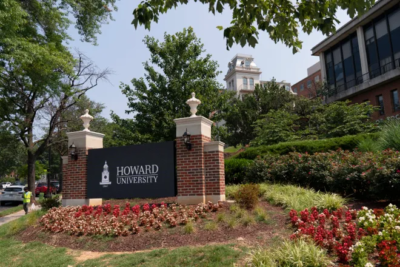 HBCU bomb threats drive frustration. No FBI word on arrests. Tiffany Cusaac-Smith and Francesca Chambers / USA Today
HBCU bomb threats drive frustration. No FBI word on arrests. Tiffany Cusaac-Smith and Francesca Chambers / USA Today
North Carolina Central University officials have noticed a change in students since a bomb threat in January at the historically Black university: more depression, anxiety and distress.
“With the recent bomb threats, we saw interruptions to how students felt safe and secure on our campus,” said Charnequa Kennedy, director of the public liberal arts institution’s counseling center. NCCU received the bomb threat at about 5:30 p.m. on Jan. 4. The campus went into lockdown. Students were relocated. The call to the university’s Durham campus was among at least half a dozen threats aimed at historically Black colleges and universities that day. Read more
Ethics / Morality / Religion
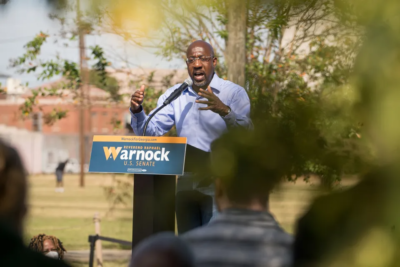 The Political Gospel of Raphael Warnock. Benjamin Wallace-Wells / The New Yorker
The Political Gospel of Raphael Warnock. Benjamin Wallace-Wells / The New Yorker
With his opponent, Herschel Walker, weathering a series of scandals, can the Democratic senator from Georgia find a way to retain his seat?
“I’m a pastor,” Warnock went on, once everyone had settled in. Since 2005, he has occupied the pulpit at Ebenezer Baptist Church, in Atlanta, where Martin Luther King, Jr., was baptized and where he preached until his death, in 1968. “I’m used to walking with people when they are in their lows and in their highs. I’m used to standing there with parents as they bless their babies. I’m used to standing there marrying couples, and speaking words of comfort when a loved one is sick, or standing there in some damp cemetery having to say farewell.” The gospel “compels us to speak on behalf of the marginalized members of the human family,” Warnock continued. “It is that work that got me here in the first place. What I’m trying to say to you is I’m not in love with politics. I’m in love with change.” Read more
 America’s religious divide isn’t really about religion. By E.J. Dionne Jr. / Wash Post
America’s religious divide isn’t really about religion. By E.J. Dionne Jr. / Wash Post
When politics itself becomes religion, it’s easy to lose track of what an authentically religious voice in public life sounds like.
This explains one of the oddities of our moment. Voters’ religious commitments (or lack thereof) are among the most powerful predictors of how they’ll cast their ballots. Yet actual religious questions mean little or nothing in our public life. There are many reasons for this, but one of the most important is the merger of religious conservatism and backlash conservatism. These have been close cousins ever since the passage of the Civil Rights Act under Lyndon B. Johnson pushed millions of conservative White Democrats, many of them devout evangelicals, into the Republican Party. Read more
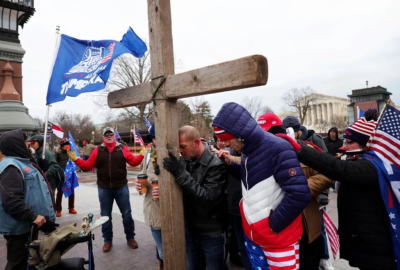 Theological pandemic: Why evangelicals embraced Jan. 6 and the Big Lie. By Nathaniel Manderson / Salon
Theological pandemic: Why evangelicals embraced Jan. 6 and the Big Lie. By Nathaniel Manderson / Salon
As an ordained minister and Bible-believing Christian, I know Trump’s people believed they were fighting for God
On Jan. 6, 2021, a large group of evangelical Christians attacked the U.S. Capitol on the understanding that they were fighting for God’s president. (Not all of those who stormed the Capitol were driven by religious convictions, of course, but a large proportion were.) They were ready to kill for their president, take down a democratic system that has endured nearly 250 years, and follow Donald Trump at God’s supposed direction until America became a Christian theocracy. As the House Jan. 6 committee concludes its investigation, I think the power and significance of these evangelical believers have been overlooked. Read more
Historical / Social
 A slaveholding senator, an 1879 wedding and a Black family’s mystery. By Julie Zauzmer Weil / Wash Post
A slaveholding senator, an 1879 wedding and a Black family’s mystery. By Julie Zauzmer Weil / Wash Post
Can a Black judge uncover the true nature of the relationship between his great-grandmother and the Alabama senator who once enslaved her?
 What can reparations for slavery look like in the U.S.? One man has ideas. By Sacha Pfeiffer and Michael Levitt / NPR
What can reparations for slavery look like in the U.S.? One man has ideas. By Sacha Pfeiffer and Michael Levitt / NPR
Professor Andrew Delbanco delivered the 50th annual Jefferson Lecture in Washington D.C. on Wednesday
Each year, the lecturer is chosen based on distinguished intellectual achievement in the humanities. Being selected to give the Jefferson Lecture is considered the highest honor given by the federal government in the field of the humanities. This year’s honoree was Andrew Delbanco, the Alexander Hamilton professor of American Studies at Columbia University and the president of the Teagle Foundation. Delbanco’s lecture, titled “The Question of Reparations: Our Past, Our Present, Our Future,” addresses reparations for slavery in the United States from a variety of perspectives. He joined All Things Considered to discuss what reparations in the U.S. have looked like in the past and what they could look like in the future. Read and Listen here
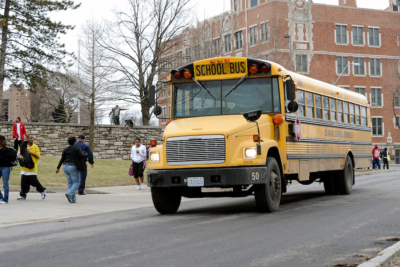 Kansas City still suffers the failures of school desegregation experiments. By David Von Drehle / Wash Post
Kansas City still suffers the failures of school desegregation experiments. By David Von Drehle / Wash Post
Students prepare to board buses at a high school in Kansas City, Mo., on March 11, 2010. (G. Newman Lowrance/Getty Images)
Bewildered and often angry, residents of Kansas City, Mo., recently packed a community meeting to hear the latest plan for the city’s long-troubled public school district. No issue was more contentious than the proposal to close Central High School. The end of Central High turns a final page on the United States’ failed attempt to integrate urban schools through top-down, often court-ordered social engineering. By the fiat of U.S. District Judge Russell Clark, taxpayers across Missouri paid the lion’s share of some $2 billion in the 1980s and 1990s to make Kansas City schools so attractive they would pull White students from the suburbs, reversing the post-World War II “white flight.” Read more
 How Toni Morrison Wrote Her Most Challenging Novel. By Morgan Parker / NYT
How Toni Morrison Wrote Her Most Challenging Novel. By Morgan Parker / NYT
‘Jazz’ is a roaming, musical book, writes the poet Morgan Parker. It reads differently than the author’s others and is said to have been her favorite.
IN THE FOREWORD to the 2004 Vintage edition of “Jazz” (1992), Toni Morrison writes that it was her body that started the book — that the first lines, like so much of the best music, were born of a physical expression of frustration. She’d already picked a time period and mapped out a plot, “read issues of every ‘Colored’ newspaper I could for the year 1926” and knew each character as well as an old tattoo, but she couldn’t “locate the voice, or position the eye.” How could the narrator elude her when the story was so clear? “I know this woman!” she kept thinking. “Angered by my inability to summon suitable language,” she writes, “I threw my pencil on the floor, sucked my teeth in disgust.” Sth. “So that’s what I wrote” she says, and it became the novel’s first line: Sth, I know that woman. Read more
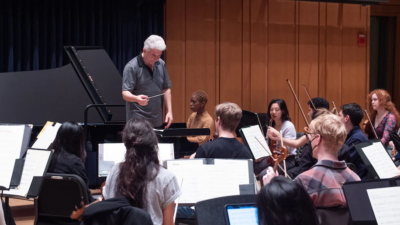 A pioneering Black composer gets her due, 110 years after her debut. By Michael Andor Brodeur / Wash Post
A pioneering Black composer gets her due, 110 years after her debut. By Michael Andor Brodeur / Wash Post
Samantha Ege and the Yale Philharmonia with conductor Peter Oundjian at a recent rehearsal of Helen Hagan’s “Piano Concerto in C Minor.” (Yale School of Music)
Born in 1891, Helen Eugenia Hagan embarked on her musical path early, playing organ at New Haven’s Dixwell Avenue Congregational Church at the age of 10. Hagan was the first Black graduate of Yale School of Music, where as an undergraduate she performed Saint-Saëns’s “Concerto for Piano and Orchestra” as well as her own concerto with the New Haven Symphony Orchestra. Her 1912 debut of the concerto (performed at Yale’s Woolsey Hall with a student ensemble) earned her the school’s inaugural Samuel Simons Sanford Fellowship, allowing her two years of postgraduate study in France. Read more
 A Brooklyn school’s students fought to add AP African American Studies to their curriculum. By Janelle Griffith / NBC News
A Brooklyn school’s students fought to add AP African American Studies to their curriculum. By Janelle Griffith / NBC News
Brooklyn Preparatory High School Assistant Principal Shannah Henderson led a push to bring AP African American studies to the school. She teaches the course.
With the help of their assistant principal and the backing of the AP for All initiative of the New York City Department of Education, students and staff launched a petition calling for African American Studies to be among the College Board’s Advanced Placement offerings. After a two-year push, the school is now among 60 across the country participating in a pilot program launched this fall for AP African American Studies — at a time when teaching about race is under assault across the United States. Read more
 A brief history of Black American folk music. By
A brief history of Black American folk music. By
Jake Blount, a banjo scholar, explains.
Jake Blount has built a career out of understanding the banjo’s connection to Black American folk music. In this video, he walks us through the instrument’s history — from West Africa to enslaved people in the US to the early record industry — to explain how Black folk music has evolved. For example: The early record industry confined Black musicians to “race records” and white musicians to “hillbilly records.” Hillbilly music would have been early country and string band music. Race records restricted Black musicians to blues and jazz genres. Which meant Black musicians playing bluegrass-style banjo weren’t recorded — even if they were responsible for teaching white musicians. Read more
Related: Black Country Is Not a Fad. It’s a Legacy. By Santi Elijah Holley / The Atlantic
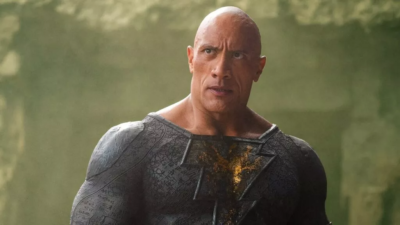 ‘Black Adam’ Review. By Sonny Bunch / The Bulwark
‘Black Adam’ Review. By Sonny Bunch / The Bulwark
In which the Rock plays Murder Superman.
This movie is nothing if not gleeful about its own brutality, and there’s something refreshingly honest about that. (At one point, Adam learns the importance of keeping prisoners alive long enough to torture them for information; you can’t say he isn’t making progress!) In an odd way, Black Adam serves as a reminder that Will Smith’s underrated Hancock came about a decade too early in the comic book boom to serve as the satirical tool it hoped to be. Either way, Black Adam is brash fun, if not high art. Read more
Sports
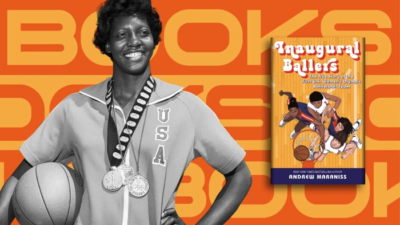 After winning silver at the Montreal Olympics, two Black women were treated as heroes in their Southern hometowns. By Andrew Maraniss / Andscape
After winning silver at the Montreal Olympics, two Black women were treated as heroes in their Southern hometowns. By Andrew Maraniss / Andscape
Trish Roberts and Lusia Harris both came from places with histories of racist violence
The most socially significant celebrations took place in Monroe, Georgia, and Cleveland, Mississippi, homes of Trish Roberts and Lusia Harris. Both were Deep South towns dripping with patriarchy and ugly histories of racist violence — not the kinds of places where white citizens held up Black women as heroes. But now, Roberts and Harris had brought home rare international glory. Read more
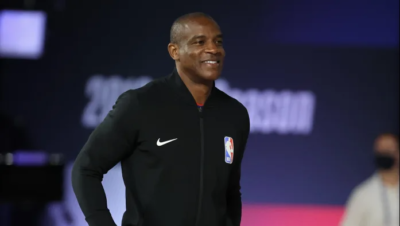 Rest in peace, Tony Brown. By Jerry Bembry / Andscape
Rest in peace, Tony Brown. By Jerry Bembry / Andscape
The longtime NBA referee died following a battle against pancreatic cancer. In his final months, he wanted to share the story of his diagnosis to raise awareness.
My initial connection with Brown came in June 2021 through the Pancreatic Cancer Action Network (PanCAN), which notified me that the longtime NBA referee was ready to share his story about his recent diagnosis of pancreatic cancer. That diagnosis came just six months after Brown reached the height of his profession, an assignment to his first NBA Finals game on Oct. 6, 2020 (Game 4, Miami Heat vs. the Los Angeles Lakers). “It was career validation,” Brown said. “I was considered one of the best referees in the world.” Read more
 Author Jeff Pearlman on how Herschel Walker’s football career shaped his political one. By Ben Jacobs / Vox
Author Jeff Pearlman on how Herschel Walker’s football career shaped his political one. By Ben Jacobs / Vox
New Jersey Generals running back Herschel Walker with team owner Donald Trump circa 1984. Bettmann Archive/Getty Images
Herschel Walker’s football career is inextricable from his political career: The only reason he has a shot at launching the latter endeavor — he’s the Republican nominee for senator in Georgia — is because he was so tremendously successful at the former, particularly in the early 1980s at the University of Georgia. The verbal gaffes and personal scandals that now threaten to derail his Senate bid were predicted by plenty of people who had followed him in recent years, but it seemed Republicans calculated his celebrity would offset those potential perils. He has since been caught misrepresenting the facts in multiple instances ranging from his ties to law enforcement to his relationship with a woman who alleges Walker paid for her to abort their unborn child. He denies the allegation. Read more
 Beer and baseball: Yurok Tribe tells its story through landmark sports deal. By Halllie Golden / The Guardian
Beer and baseball: Yurok Tribe tells its story through landmark sports deal. By Halllie Golden / The Guardian
The tribally owned Mad River Brewing Company has partnered with the Giants to build an economic support system and back key causes
These days, you’ll see them sprinkled across Oracle Park, the stadium of the San Francisco Giants: bright blue cans with images of a steelhead fish flapping above a waterway, a deer with its head to the ground or a dam in the Klamath River. The cans are produced by the Mad River Brewing Company, owned by the largest federally recognized Indigenous nation in California, the Yurok Tribe. And in April, they became the first tribally owned craft beer sold in a major league sports stadium. Read more
Site Information
Articles appearing in the Digest are archived on our home page. And at the top of this page register your email to receive notification of new editions of Race Inquiry Digest.
Click here for earlier Digests. The site is searchable by name or topic. See “search” at the top of this page.
About Race Inquiry and Race Inquiry Digest. The Digest is published on Mondays and Thursdays.
Use the customized buttons below to share the Digest in an email, or post to your Facebook, Linkedin or Twitter accounts.